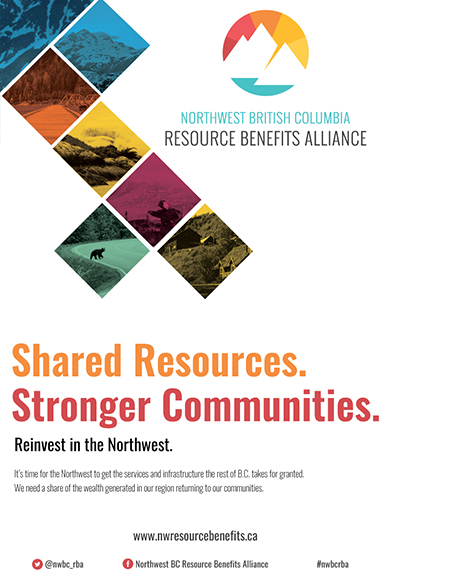This coverage is from the Interior News and the original article can be found here.
Rod Link
The end of the struggle for northwestern local governments to get a share of resource industry taxes going to the provincial government may not be in sight but at least now provincial officials are familiar with the situation, says Houston mayor Shane Brienen.
As one of three northwestern mayors on the Northwest B.C. Resources Benefits Alliance steering committee, Brienen was in Victoria in February to press the case for taxation sharing.
“The feeling we had this time is that we’re not starting fresh,” said Brienen.
“This time we had the feeling people know what the resource benefits alliance is and what we want it to achieve.”
“All the MLAs we met from the region were very supportive.”
The list of people Brienen and others met included Premier David Eby; municipal affairs minister Anne Kang; Nathan Cullen, the NDP MLA for Stikine who is also the water, land and resource stewardship minister; B.C. Liberal Skeena MLA Ellis Ross; and Kevin Falcon, the B.C. Liberal opposition leader.
The alliance for years has pressed the case for resource taxation sharing, pointing out that large-scale industrial developments take place in areas where local governments can’t tax them but, at the same time, their municipalities bear the cost impacts of the industrial activity.
Its members stretch from Fraser Lake in the east to local governments on Haida Gwaii and include the three regional districts in the northwest.
Formed in 2014, the alliance began lobbying the previous B.C. Liberal government and, following its 2017 election defeat, has been trying to persuade the current NDP provincial government to share a portion of the provincial taxes.
The alliance has often pointed to the northeast where a decades-old agreement between local governments in that area and the province results in taxation sharing of oil and gas revenues flowing to the province.
The province did distribute $150 million to local governments from Haida Gwaii to Prince George in 2019 and 2020 to spend on capital projects.
And it has now promised to distribute $1 billion among all local governments in B.C. by the end of March.
“Of course we would welcome that,” said Brienen of the northwest’s share of the $1 billion. “But that would not take the place of stable funding.”


